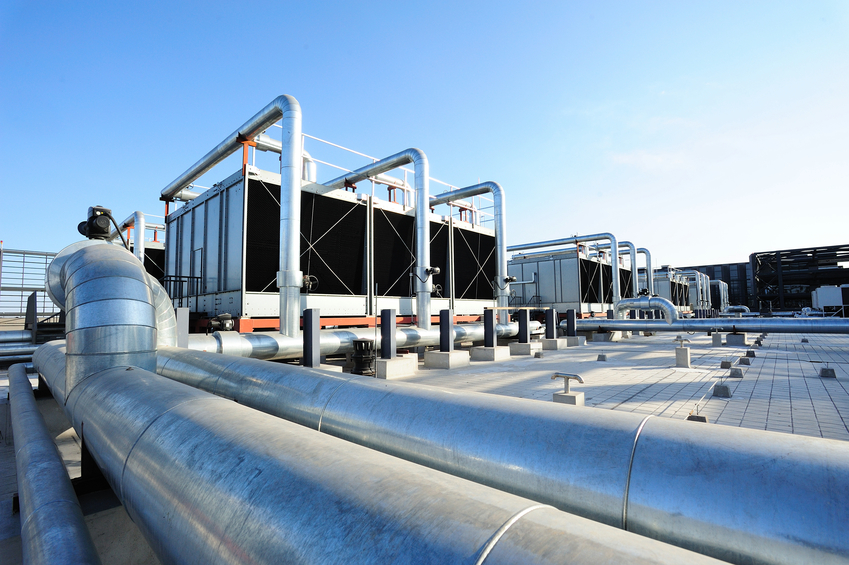Texas Mechanical and Ethics 15 PDH Discount Package 3
Principles of an Internal Combustion Engine (M03-051)
Overview of Gas Turbines (M02-057)
Determining Negligence in Engineering Failures (LE2-012)

This online engineering course provides necessary information to understand the principles and theory of refrigeration, the components of mechanical refrigeration systems, and the types of refrigerants and associated equipment. This course also discusses the methods used for installing, maintaining, and repairing refrigeration equipment, including domestic refrigerators and freezers.
Refrigeration is the process of removing heat from an area or a substance. It is usually done by an artificial means of lowering the temperature, such as by the use of ice or mechanical refrigeration, which is a mechanical system or apparatus, designed and constructed to transfer heat from one substance to another.
This 8 PDH online course is intended for HVACR, mechanical and industrial engineers, manufacturers, maintenance staff, and others seeking a basic understanding of refrigeration systems.
This PE continuing education course is intended to provide you with the following specific knowledge and skills:
- Understanding the physics behind heat and refrigeration
- Learning about the refrigeration cycle and its different mechanical components
- Familiarizing with the different types of refrigerants
- Understanding the safety precautions associated with refrigerants
- Familiarizing with the different types of refrigerant equipment
- Understanding the installation procedures for refrigerant equipment
- Learning about the maintenance, service, and repair procedures associated with refrigerant equipment
Upon successful completion of the quiz, print your Certificate of Completion instantly. (Note: if you are paying by check or money order, you will be able to print it after we receive your payment.) For your convenience, we will also email it to you. Please note that you can log in to your account at any time to access and print your Certificate of Completion.

This online engineering course presents the operational principles and basic mechanisms of the internal combustion engine.
The power of an internal combustion engine comes from burning a mixture of fuel and air in a small, enclosed space. When this mixture burns, it expands significantly; building pressure that pushes the piston down, in turn rotating the crankshaft. Eventually, this motion is transferred through the transmission and out to the drive wheels to move the vehicle.
The automobile is a familiar object to all of us. The engine that moves it is one of the most fascinating and talked about of all the complex machines we use today. This machine is what we call the internal combustion engine.
This 3 PDH online course is intended for mechanical and industrial engineers, designers, manufacturers and anyone interested in gaining a better understanding of the basics of an internal combustion engine.
This PE continuing education course is intended to provide you with the following specific knowledge and skills:
- Understanding the principles of operation, the different classifications, the measurements and performance standards of an internal combustion engine
- Identifying the series of events /cycles in a gasoline engine
- Identifying the series of events /cycles in a diesel engine
- Understanding the differences between a four-stroke cycle engine and a two-stroke cycle engine
- Recognizing the differences in the types, cylinder arrangements, and valve arrangements of internal combustion engines
- Identifying the terms, engine measurements, and performance standards of an internal combustion engine
Upon successful completion of the quiz, print your Certificate of Completion instantly. (Note: if you are paying by check or money order, you will be able to print it after we receive your payment.) For your convenience, we will also email it to you. Please note that you can log in to your account at any time to access and print your Certificate of Completion.

This online engineering PDH course provides an overview of gas turbines, by briefly discussing the basic theory, types, construction features, and operating principles of gas turbine engines.
The gas turbine is an internal combustion engine that uses air as the working fluid. The engine extracts chemical energy from fuel and converts it to mechanical energy using the gaseous energy of the working fluid to drive the engine.
The gas turbine, when compared to other types of engines, may offer many advantages. Its high power-to-weight ratio has made it the preferred engine for an aircraft. In terms of fuel economy, modern gas turbines may compete with diesel engines and be superior to boiler/steam turbine plants.
This 2 PDH online course is applicable to mechanical engineers as well as others who are interested in learning about Gas Turbines.
This PE continuing education course is intended to provide you with the following specific knowledge and skills:
- Familiarizing with the laws and principles that apply to gas turbine engines
- Understanding the methods used to classify gas turbines
- Learning about the major components used on gas turbines
- Learning about the functions of the starting systems and the types of ignition aids
- Gaining a general overview on the types of gas turbine monitoring systems
Upon successful completion of the quiz, print your Certificate of Completion instantly. (Note: if you are paying by check or money order, you will be able to print it after we receive your payment.) For your convenience, we will also email it to you. Please note that you can log in to your account at any time to access and print your Certificate of Completion.

This engineering online PDH course will establish conditions under which, when an engineering failure has occurred, it can be attributed to negligence.
Five causes of failure are proposed: negligence, rare failure mode, overlooked failure mode, new (previously unrecognized) failure mode, and incorrect assessment of a known risk. Negligence is the only cause that involves failing in an ethical duty. These concepts are illustrated with five case studies of failures ranging from gross negligence to absolutely unforeseeable events: 1) the Great Boston Molasses Flood of 1919, for which a new possible cause was identified 95 years later (2014); 2) a building collapse in Bangladesh in which over 1,000 people died—one of the worst structural engineering disasters in history; 3) a meteorite strike of a private residence; 4) the crash of the British-French Concorde supersonic airliner, caused by an unlikely tire blow-out; and 5) radiation overdoses received by patients treated by the Thorac-25 medical linear accelerator, caused by errors in the software controlling the machine.
The 2 PDH online course is intended for engineers concerned with ethical behavior in engineering practice.
This PE continuing education course is intended to provide you with the following specific knowledge and skills:
- Understanding the definitions of negligence and standard of care
- Relating safety to risk
- Knowing the principle of Knightian uncertainty
- Avoiding the retrospective fallacy in accident investigations
- Avoiding the fallacy, in accident investigations, of assuming perfect engineering practice
- Using the results of failure investigations appropriately
- Being aware of the negative effects of punishment on learning from accidents
- Categorizing the general causes of engineering failures
Upon successful completion of the quiz, print your Certificate of Completion instantly. (Note: if you are paying by check or money order, you will be able to print it after we receive your payment.) For your convenience, we will also email it to you. Please note that you can log in to your account at any time to access and print your Certificate of Completion.